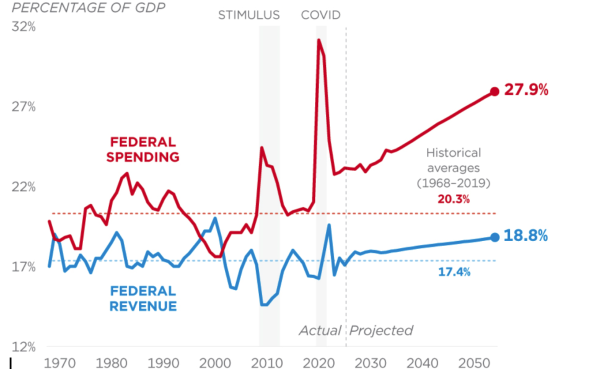Hong Kong: the fight for democracy
Under President Xi Jinping, Beijing and the Chinese Central government have begun chipping away at Hong Kong‘s independence. Formally existing as a British Colony, Hong Kong was returned to China in 1997, under a new “one country, two systems” policy, which maintained the area as a semi-autonomous region devolved from the national government. Hong Kong has its own constitution, executive, legislative, and judiciary branches. Because of this, they have managed to preserve freewheeling press, open internet, independent courts, and free speech which is absent in most communist mainland China. That autonomy expires in 2047, under a mini-constitution called the Basic Law.
Recently, a new extradition bill was proposed that could detain and transfer criminals between Hong Kong, Taiwan, and mainland China. Hong Kong’s chief executive states that the bill is necessary to prosecute a Hong Kong man, wanted for murdering his girlfriend in Taiwan. The plan applies to 37 crimes, not including political crimes, but citizens fear that the bill would essentially legalize the abductions and extraditions of political activists and pro-democracy leaders to mainland China, suppressing dissidents and political opposition. This could bring Hong Kong citizens into communist mainland courts, with little chance of obtaining a fair trial. However, the chief executive and a Hong Kong court would first have to approve a case against a suspect, but due to Hong Kong’s subordinate status to the mainland and pressure from superiors, rejecting an extradition request would be near impossible.
Taiwan, another self-governing democracy, will not accept any extradition plan that includes them as part of China. On the streets of Hong Kong, what began as a small demonstration against the extradition bill has morphed into the largest protest movement in Chinese history, drawing upwards of 1.5 million Hong Kong residents in the street at a time. Toby Liu, a sophomore, expressed his concerns regarding the state of Hong Kong.
“As a second-generation Cantonese-American with family that is currently protesting in Hong Kong, I feel very strongly against the extradition bill,” said Liu. “Because their democracy basically expires in 2047, I’m scared for Hong Kong’s future, as my family lives there.”
The potential changes could completely alter Hong Kong’s open environment. “When I’ve gone to Hong Kong in the past, it’s been a free place to visit similar to the United States, and I don’t want that to disappear,” said Liu.
With tensions rising between Hong Kong police and protesters, many citizens fear for their own safety. Drawing their guns, throwing tear gas, and unleashing water cannons against the protesters, riot police are attempting to disperse the crowds from off the streets. This seemed to inflame the situation, and protesters responded violently by throwing both bricks and lethal gasoline bombs.
“Police have reacted violently, and the protestors are seeking a commission to investigate their tactics and a broadening of the right to vote,” said John Monahan, a history teacher and advisor for Young Democrats. Monahan recognizes the protesters’ beliefs and motivation for their demonstrations.
“Many protesters are young and still attending university, but the crowds are not dying down despite school being in season,” said Monahan. “It’s easy to understand where the protesters are coming from. Having grown up with access to outside media and many civil liberties, the idea of that being taken away by the Chinese government seems to violate the citizens’ subconscious expectations of what it means to be a free person. I deeply respect the right to protest, and while we have the first amendment, I feel that every human should have that right. With little national security interest to get involved from foreign countries, the protestors are basically on their own, but we don’t want another Tiananmen Square incident. That being said, the protesters are attracting worldwide coverage, and they should keep trying to hold the attention of people who could help them.”
Many large conflicts concerning free speech precede the extradition bill. In recent years, the communist party of China has begun to encroach upon the one country two systems plan, gradually attempting to incorporate Hong Kong back into the mainland. In 2015, they abducted 5 Chinese booksellers from Hong Kong, accused of selling books critical of the Chinese government and officials. Five years ago, the National People’s Congress of China approved a bill giving citizens of Hong Kong the right to vote for their chief executive. However, the bill stated that candidates must first be approved by China’s Electoral Committee, a biased group comprised mostly of Beijing officials and Chinese loyalists. Even after screened candidates were approved, the Chinese national government would have the final say in appointing a chosen chief executive. Outraged, citizens realized that their candidates were still being handpicked by the Chinese government, and frustration sparked the Umbrella Movement, a series of sit-in protests, street occupation and activism from Hong Kong citizens.
In 2017, Carrie Lam was appointed as chief executive of Hong Kong. Disliked by many citizens, her low credibility and criticism towards protesters further ignited the situation, when she stated that protesters “gave Hong Kong a bad reputation.” While she eventually withdrew the extradition bill, her motives were questionable, and her words suggested she did it to clear the heavy media focus in the area.
The situation in Hong Kong has evoked strong moral interest and support from people all around the world. Many respect the battle for democracy, and while the fight is far from over, the extradition bill has revealed China’s controversial government system, and it’s concerning usage of power.
Sophomore Rahul Ramineni believes that the protesters should persist in their efforts. “It’s hard to imagine a world where democracy and civil liberties are not rights but rather privileges,” said Ramineni. “I support the young protesters fighting for their freedom.”




